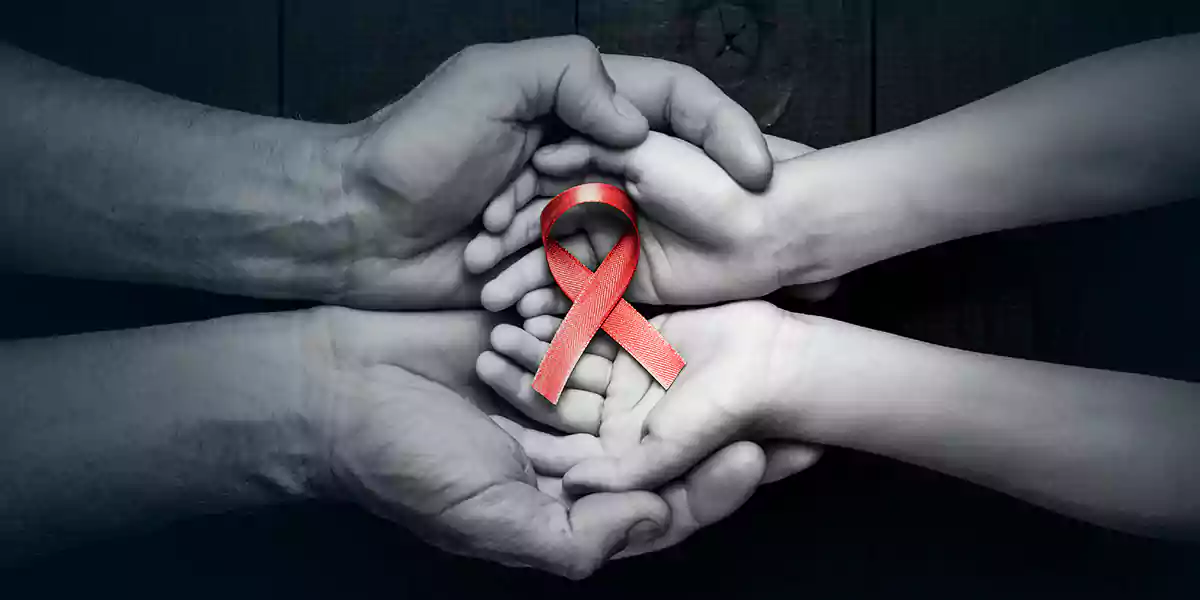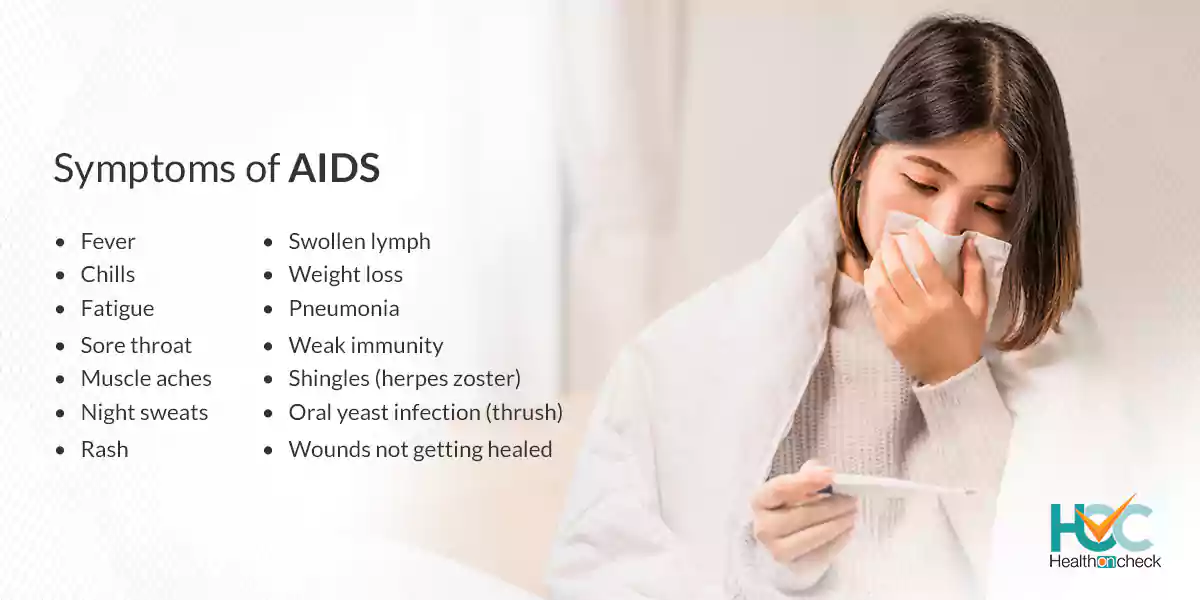All about AIDS

What is AIDS?
AIDS- Acquired immunodeficiency syndrome- is a chronic disease that is life-threatening because there is no cure for this condition. AIDS is the most advanced state of HIV but everyone with HIV doesn’t need to have AIDS. When infected by HIV, it affects the immune system of the body and reduces the capability of the body to curb various infections and diseases. In simple words, AIDS is not a disease in itself but it weakens the immune system so much that when any other disease occurs, the immune system isn’t able to cure it, and leads to death in most cases.
What are the Types of AIDS?
There are many stages of AIDS and researchers have classified AIDS into two main types HIV-1 and HIV-2. Even though their names may sound similar but are actually two distinct types of virus. On a genetic level, HIV-2 is more than 55 percent different from HIV-1.
- HIV-1
It can be found throughout the world and is transmitted more easily. Most cases of AIDS are related to HIV-1 as it’s the main type of HIV throughout the world and can be transmitted more easily as compared to HIV-2. It’s estimated that 95 percent of people who are infected with HIV have HIV-1
- HIV-2
HIV-2 is almost exclusively limited to West Africa and it’s not communicable like HIV-1 and it develops slowly. It is resistant to a few kinds of antiretroviral drugs, like non-nucleoside reverse transcriptase inhibitors (NNRTIs).
What are the Symptoms of AIDS?
Many times HIV does not show symptoms so it’s important to get tested even if you don’t feel sick. But most of the time, the symptoms of HIV occur and some common symptoms are:

- Fever.
- Chills
- Fatigue.
- Sore throat.
- Muscle aches.
- Night sweats.
- Rash.
- Swollen lymph
- Wounds not getting healed
- Weak immunity
- Weight loss
- Oral yeast infection (thrush)
- Shingles (herpes zoster)
- Pneumonia
Most of these symptoms are common to various other diseases also and that’s why you should not take things casually. If you have some symptoms mentioned above, make sure to get yourself tested for HIV.
What are the Causes of AIDS?
AIDS is caused by a virus known as human immunodeficiency virus (HIV) that affects the helper T-cells of your immune system, making it weak which results in your body not being able to cure other illnesses. HIV mostly transmits from one person to another person via semen, blood, vaginal fluids, breast milk, and rectal fluids. The virus can be transmitted via the anus, penis, vagina, or broken skin. Here are some causes of how this virus spreads:
- Unprotected Sex: If you had unprotected sex with an HIV infected person, the chances of you being affected rise a hundredfold.
- Blood Transmission: If you receive blood from an HIV infected person, you will get infected by HIV
- From Pregnant Woman to her Child: HIV can be transmitted from an HIV-infected woman to her newborn child
- Sharing Needles: Sharing needles with someone who is infected with HIV is a big cause of HIV infection and that is why many drug addicts get infected by it.
Apart from the above mentioned things, you should be aware of the fact that kissing does not transmit HIV but in certain instances where other body fluids are shared such as if one of them has open sores or bleeding gums, there are high chances of getting infected by HIV.
Contrary to misconceptions HIV does not transmit through hugging, touching, sharing food, using the same bathroom or swimming pool, mosquito bites, etc.
What are the Risk Factors Associated with AIDS?
Anyone can get AIDS irrespective of age, race, sex, or sexual orientation. Though, some risk factors of HIV/AIDS are:
- Unprotected sex: Never indulge in unprotected sex especially if it’s with someone you barely know. Use protection like a condom every time you have sex. Anal sex has more risk than vaginal sex. Also the chances of HIV increase with multiple sexual partners.
- Have an STI: Many STIs yield open sores on your genitals. These sores are the doorways for HIV entering the body.
- Use illicit injection drugs: For people who are into drug abuse, especially the ones where it’s injected, sharing needles increases the risk of HIV infection from one person to another because of droplets of other HIV-infected person’s blood.
- Infected pregnant woman to her baby: If the pregnant woman is infected with HIV, risk of the child also being HIV positive is very high
What are the Complications of AIDS?
AIDS weakens your immune system, which results in the development of various types of infections, diseases, and even some types of cancer. many infections and certain types of cancers.
Some complications of HIV Infection/AIDS are:
- Pneumocystis pneumonia (PCP): It’s a fungal infection that results in various kinds of health conditions. Even though it’s dropped considerably with t treatments for HIV/AIDS, it’s still a very rampant cause of pneumonia in people with HIV.
- Candidiasis: Candidiasis occurs because of various HIV-related infections. During Candidiadis you may feel inflammation along with a dense, white coating on your mouth, vagina, tongue, etc.
- Tuberculosis (TB): Tuberculosis also known as TB is one of the most common complications that is linked to HIV. TB is one of the leading causes of death among people across the globe.
- Cytomegalovirus: This common herpes virus is transmitted in the body via blood, urine, semen, and breast milk. A sturdy immune system deactivates the virus, and it remains inactive in your body. When your immune system weakens, the virus reappears and causes damage to your eyes, lungs, digestive area, or other organs.
- Cryptococcal meningitis: It is an inflammation of the membranes and fluid adjoining your brain and spinal cord together. Cryptococcal meningitis is a usual central nervous system infection that is linked to HIV.
Apart from the above mentioned complications, HIV /AIDS can lead to various types of cancers such as Lymphoma, Kaposi’s sarcoma, and HPV-related cancers.
How is AIDS Diagnosed?
AIDS is mostly diagnosed through blood and saliva tests. There are various methods available to diagnose AIDS such as:
- Antigen/antibody tests: Blood samples are taken from a vein and then checked in the laboratory to find antigens. Antigens are elements found in HIV and are commonly noticeable and confirm HIV infection in your blood. Antibodies are created by your immune system when it’s exposed to HIV. It may sometimes take weeks to months for antibodies to become visible. The amalgamation antigen/antibody tests can take 2 to 6 weeks after exposure to become HIV positive.
- Antibody tests: These tests are taken to detect antibodies to HIV in blood or saliva. Most rapid HIV tests involve self-tests done at home. Antibody tests mostly take 4 to 13 weeks after you’re exposed to become positive.
- Nucleic acid tests (NATs): These tests are carried out to detect the actual virus in your blood. They also include blood samples taken from a vein. If you might have been infected by HIV within the past few weeks, your doctor may endorse NAT.
What Are The Treatment Options For AIDS?
Currently, there’s no treatment available to cure HIV/AIDS. Once infected, your body can’t get rid of it. Nevertheless, there are a few medications available that can keep a check on HIV and avert further complications. These medications are known as antiretroviral therapy (ART). Everyone diagnosed with HIV should begin his treatment with ART to ease the symptoms, irrespective of the stage of infection or complications.
Some of the medications are:
- Non-nucleoside reverse transcriptase inhibitors (NNRTIs)like efavirenz (Sustiva), rilpivirine (Edurant) and doravirine (Pifeltro).
- Nucleoside or nucleotide reverse transcriptase inhibitors (NRTIs)like abacavir (Ziagen), tenofovir disoproxil fumarate (Viread), emtricitabine (Emtriva), lamivudine (Epivir) and zidovudine (Retrovir). Amalgamating drugs also are available, like emtricitabine/tenofovir disoproxil fumarate (Truvada) and emtricitabine/tenofovir alafenamide fumarate (Descovy).
- Protease inhibitors (PIs)include atazanavir (Reyataz), darunavir (Prezista), and lopinavir/ritonavir (Kaletra).
- Integrase inhibitorswork by incapacitating a protein called integrase, which HIV practices to inset its genetic material into CD4 T cells. Examples include bictegravir sodium/emtricitabine/tenofovir alafenamide fumarate (Biktarvy), raltegravir (Isentress), dolutegravir (Tivicay) and cabotegravir (Vocabria).
- Entry or fusion inhibitorsblock HIV’s entry into CD4 T cells.
Examples include enfuvirtide (Fuzeon) and maraviroc (Selzentry)
Living with AIDS
In a country where AIDS is still considered taboo, living with it is not an easy thing. AIDS is not curable and people suffering from AIDS die early as compared to other diseases. But a good doctor can ease your symptoms and if proper care and treatment are carried out, one can live a long and dignified life. People have many misconceptions regarding AIDS and many think AIDS can be transmitted even through touching which is not true. AIDS patient becomes isolated but people need to understand that AIDS patients need love and companionship and the lack of it makes many depressed. Always be surrounded by people who care and love you. Avoid negative people and you can live a life in a dignified way irrespective of the time you have.
Whom to Consult?
If you feel symptoms of HIV infection and recently indulged in one of the causes of AIDS like unprotected sex etc, visit a doctor immediately and do a checkup as soon as possible. The doctor will diagnose your condition and then proceed accordingly.




